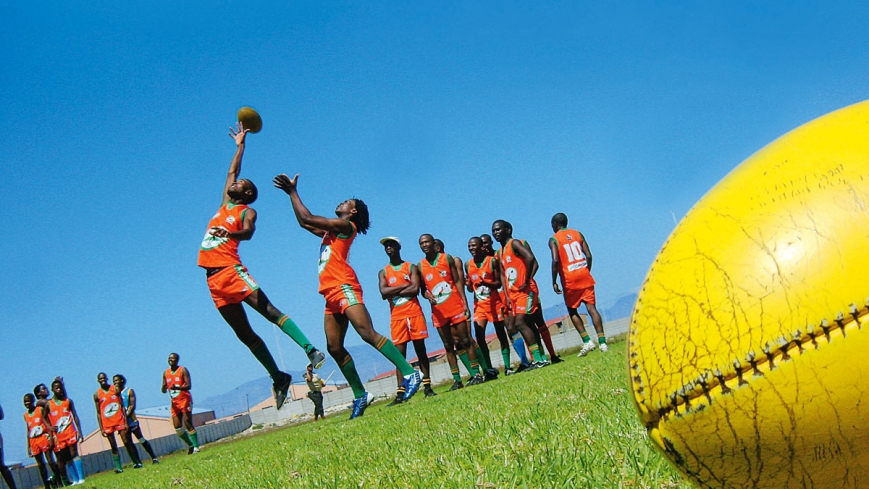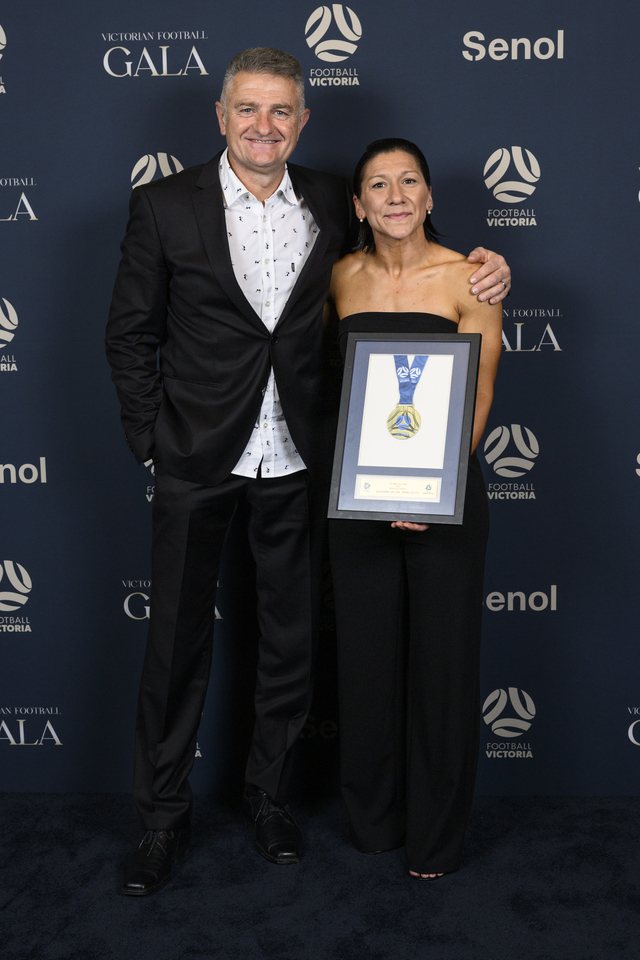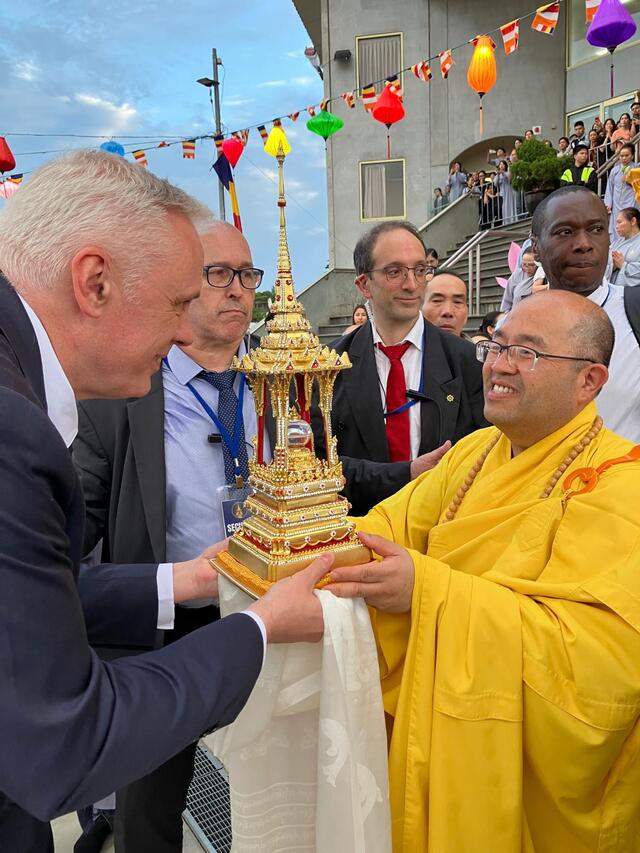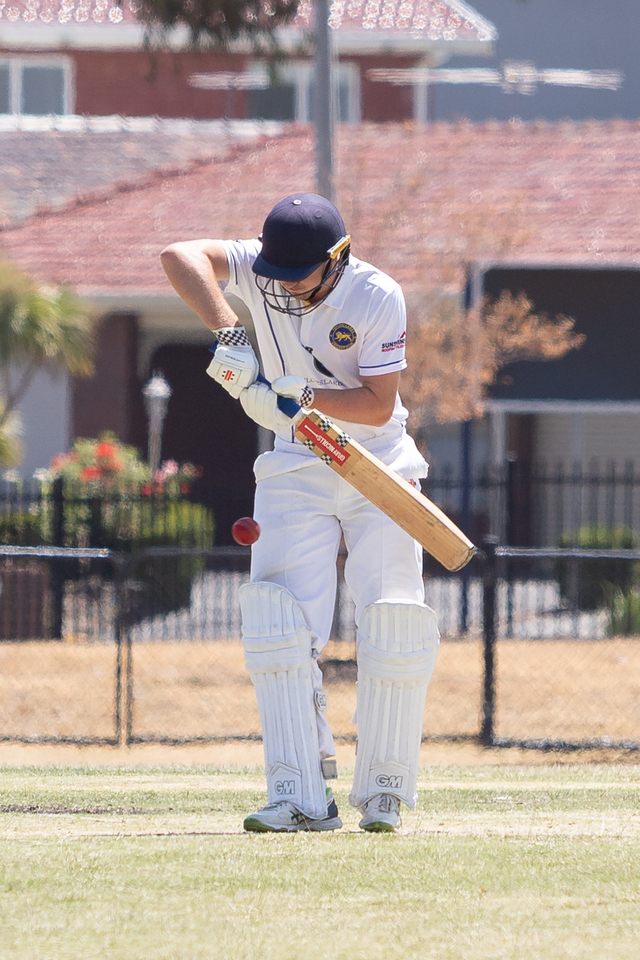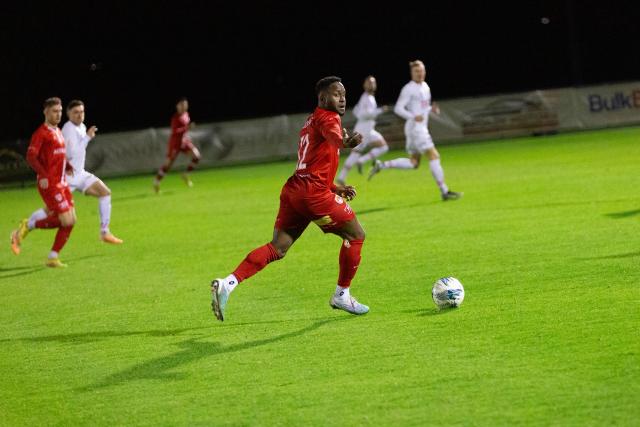On Anzac Day last year, St Kilda took on the Sydney Swans in the first AFL game played for premiership points outside Australia. New Zealand was the location, Sydney was the victor, and the AFL was another step closer towards boosting its global appeal.
Filmmaker Michael Stringer McIntyre, however, believes there is more to do if the AFL is to survive in an increasingly competitive international sporting arena. His documentary, Aussie Rules the World, is being marketed under the tagline “Australia’s national game is under threat from all world sports”.
While he’s open about using that hook as a storytelling device, the documentary – which is independent of, and received no funding from, the AFL – grew out of changes McIntyre could see becoming more and more apparent.
“The ability to watch world sports now, due to tablet technology, has exploded. It’s all of a sudden something you do in the bus stop. The viewing habits of sports fans have changed dramatically in the past three years,” McIntyre says.
“I’ve got a 13-year-old son, and I’ve watched him over the past couple of years get obsessed with the English Premier League and the NBA, to the detriment of his following AFL. It’s that generation that is really getting seduced by these big leagues … that generation is going to have far more choice, and will that affect how often they watch the AFL? I think it’s a discussion we should have.”
It’s fair to say the AFL’s response to this perceived threat has resulted in an antagonistic relationship with other codes. There have been tiffs reported over the years, from struggles about access to stadiums that may or may not have affected Australia’s World Cup bid, to the targeting of rugby heartlands in recent expansions.
With that in mind, it must be said Aussie Rules the World is a genuinely sweet and uplifting look at the sport. Instead of the panic hinted at in its marketing, there is a sense of wide-eyed discovery as McIntyre and his crew traverse the globe, spreading the gospel of AFL. With them is the documentary’s not-so-secret weapon – step forward Brett Kirk.
In 2011, when Kirk had just retired from a storied career as the Sydney Swans’ captain, the AFL approached him with an opportunity to travel with his family, tell other countries about the sport and do some coaching.
Kirk responded to the offer in vintage fashion: “Wow, this is a real job!”
“You get to travel a little bit when you play footy,” says Kirk, “but my wife and I had talked about a bigger trip. We had four kids at the time, and they were all under the age of six, so they really didn’t have a say.”
McIntyre grew up in Hobart, steeped in the cult of Richmond, but as an adult living in Sydney, he couldn’t avoid hearing about Kirk and the Swans. On hearing about Kirk’s retirement and his new role with the AFL, McIntyre couldn’t resist reaching out with an idea; a few days later, the seeds of what were to become the documentary had taken root.
“I followed Brett’s career, but, more than that, I followed his path as a man, as a leader in the community. He’s Buddhist, and openly spoke about his yoga and his meditation, while being at the top of his game in this fierce, competitive world of sport,” McIntyre says. “I thought it would be a great story.”
Having recently seen the finished documentary, Kirk speaks approvingly of the emotional connections to some of the storylines in it, recalling in particular South African children singing tribal songs while learning the basics of the sport.
He says it was awkward seeing himself on film, but it helped that he recorded some of it himself. “They sent some crews with us, but I was doing a video blog by myself wherever I went,” he says. “It wasn’t Kardashian-type stuff in my face all the time.”
Kirk’s travels spanned more than 20 countries in six months, including a trip to a remote factory to procure footballs for the burgeoning Indian team, and Denmark, where a nationwide competition grew out of an ad an expat took out decades ago in a quest for a kick.
“I had a wonderful experience, and I was really inspired by the passion of the people involved and how they wanted to grow the sport with not a lot of money or resources,” Kirk says.
Some of the discoveries featured in the documentary are amazing. In the US, for example, Kirk and McIntyre found 35 Australian rules clubs with more than 2000 players. In South Africa, there were 18 clubs – and 20,000 players across the country. According to the AFL, 100,000 people play the game overseas.
“I was blown away by the amounts of people that were getting involved in the game.”
“What I found is that once someone experiences it, it’s so unique that they are hooked pretty quickly,” Kirk says.
“That’s the beauty of AFL, it doesn’t matter what your size is, whether you’re tall or small or short, strong or skinny or weak, you can play the game. It brings people together. You’re all on the same level, it breaks so many barriers.”
Of course, there is a bizarre duality between lamenting the burgeoning popularity of international sports in Australia and then cheering on Australia’s attempts to spread Aussie rules overseas. Once again, it’s a gap the film covers by virtue of its genial tone; as McIntyre points out, the fact that it is so inextricably intertwined with this country is an enduring part of its appeal abroad.
“It’s a bit like when you export something like Vegemite, or apple pie from America. The exotic nature of it makes it appealing; it’s the niche aspect that people like. There’s an aside to that, though – I did hear from the New Zealanders that they prefer to call it AFL!”
Kirk agrees with the sentiment, putting a topically local twist on the passion for the game that exists beyond Australian shores. “It really surprised me,” he says. “Some of the places I visited could have easily been somewhere in country Victoria – volunteers run everything, there’s not a lot of money involved, people just love the game, they play with 100 per cent effort and then afterwards everyone gets together and has a barbecue and a few beers.”
The hunger for international expansion is hardly new to sport. European soccer clubs have played pre-season tours in Asia and the US for decades. The NFL plays in London as part of its regular season; even Major League Baseball has the odd game in Australia.
Against this backdrop, McIntyre feels the AFL – which did not respond to a request for comment – could do more to promote the sport internationally.
“There are markets out there for people who love their sport,” he says. “I’m not saying you set up a huge international league, but… it wouldn’t take much to give overseas audiences a reason to be involved. It’s pretty basic stuff – I know you can watch footy online overseas, but how well is it promoted?” he says.
“We just want the film to generate that discussion, otherwise there’s a bit of that head-in-sand mentality – we didn’t see it coming, or we’re missing out on an opportunity.”
One of the AFL’s more visible efforts to expand its international reach is the International Cup, which has been held in Australia every three years since 2002.
Aussie Rules the World documents the 2011 contest, which ends with some underdog heroics we won’t spoil here. The film is being released to coincide with this year’s International Cup, which will be held in Melbourne next month, including 18 men’s teams and seven women’s teams.
McIntyre says the AFL doesn’t throw a lot of weight behind the International Cup, but he can see the potential inherent in the competition.
“The International Cup is all about highlighting how much football is loved in other countries. You don’t have expat Australians making up the bulk of the team; they’re all foreign nationals, and that makes it quite special.”
Various interviewees in the documentary, and McIntyre himself, hope for a day when the standard of Aussie Rule overseas is good enough for a competition with an Australian team – perhaps a combined VFL team taking on a combined international team.
McIntyre also remains sanguine about the sport’s continued global development. “The first step has happened, and the games are being played overseas now,” he says.
“The next step will be an AFL team being based overseas and more players coming from there – over the next 10 to 15 years, I think it’s inevitable.”
Kirk agrees, not just in terms of the way it helps build communities abroad but also the way the sport accepts people from all over the world. He references former Swans teammates Mike Pyke, who hails from Canada, and Tadhg Kennelly, from Ireland, as examples of players who have gone on to excel.
“There are definitely athletes out there who can play the game, and those guys give others hope that with the right commitment and dedication and the right opportunities, they can do it,” he says.
“Sometimes you only need one person or one player to make it, and that can inspire so many people. I don’t think anyone thought Aussie rules was going to become a national competition 20 years ago, and now it’s being played all over Australia. Who knows what’s possible?” \
» Aussie Rules The World. In cinemas July 22
» 2014 AFL International Cup: Melbourne, August 9-23
2014 AFL International Cup
Men’s teams \ Canada, China, Fiji, Finland, France, Indonesia, Ireland, Great Britain, India, Japan, Nauru, New Zealand, Pakistan, Papua New Guinea, South Africa, Sweden, Tonga, US and, playing for the first time this year, Finland, Indonesia and Pakistan.
Women’s teams \ Northern Lights, Midnight Suns (both Canada); Ireland; Fiji; Tonga; Freedom and Liberty (both US).

